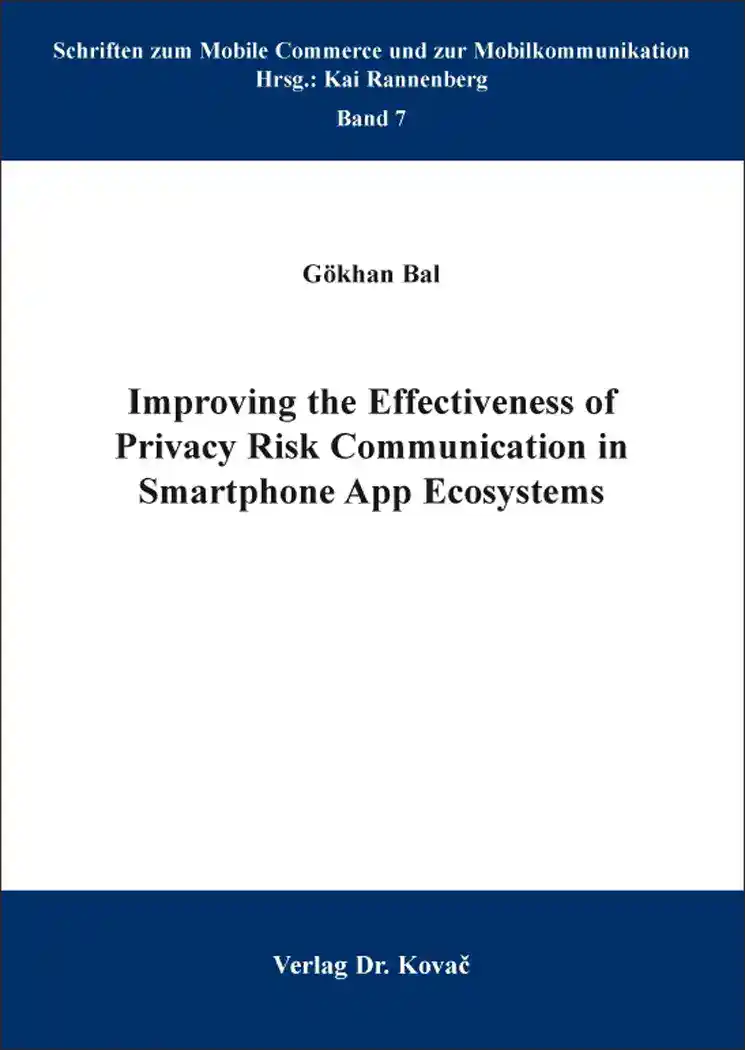Gökhan BalImproving the Effectiveness of Privacy Risk Communication in Smartphone App Ecosystems
- in englischer Sprache -
Schriften zum Mobile Commerce und zur Mobilkommunikation, volume 7
Hamburg 2015, 280 pages
ISBN 978-3-8300-8609-3 (print) |ISBN 978-3-339-08609-9 (eBook)
About this book deutschenglish
Nowadays, we can’t imagine living without smartphones. We always have them with us and they make us online all the time. If we want to know something, we ask them. If we look for a specific location, we ask them. If we are bored, we play games on them. But if we even once leave them at home, we feel lost. What is it that makes smartphones that indispensable? It’s the multiplicity of features that millions of apps offer their users. Additionally, new-generation smartphones offer a high usability and a high user experience. For example, if we need a recommendation for a good restaurant nearby, we don’t need to enter our current location manually. Apps just ask the smartphone directly and the smartphone provides the answer without “annoying” the user. That works in the same way for other user data such as the contacts, the calendar, installed apps, sensor data, visited websites, or others. That’s all well and good regarding the usability, but there is a dark side to it: Usually, people use dozens of apps that in turn access to a multiplicity of user data. If, then, access to user data happens automatically without user involvement, it’s impossible for the user to keep track of those information flows and consequently, keep track of how app usage impacts their privacy. Privacy notices that for example can be found in app stores are often not helpful. Most often, users keep ignoring them since they are not comprehensible and too long.
This dissertation addresses this problem. The aim was to develop more comprehensible privacy notices for the app ecosystem. The innovative approach of this research was to extract detailed privacy profiles for individual apps by analyzing their data-access behavior and to provide users concrete and easy-to-understand information about potential privacy-related consequences. The empirical results of this research demonstrate that the new approach provides more comprehensible privacy information about apps and is more effective in informing users about potential consequences. Also, it makes the comparison between apps easier and supports a safe use of apps.
Ihr Werk im Verlag Dr. Kovač

Möchten Sie Ihre wissenschaftliche Arbeit publizieren? Erfahren Sie mehr über unsere günstigen Konditionen und unseren Service für Autorinnen und Autoren.
